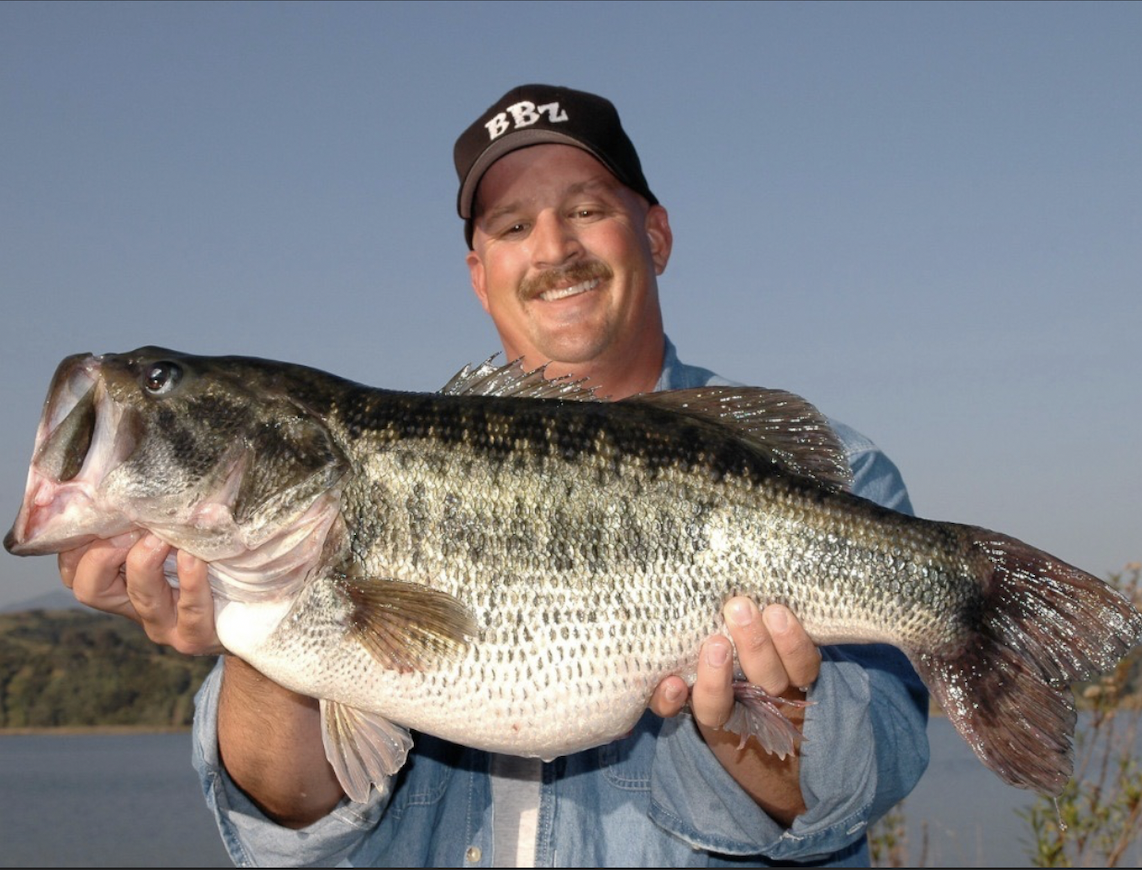Bear In Mind
Big bass eat throughout the winter, although they may dine less frequently than in warmer months. Photo: Bill Siemantel.
What if we said, “Bass are like bears, they hibernate”? Hopefully, you would – in no uncertain terms – tell us how incredibly stupid that sounds. But if bass don’t hibernate, then why do so many anglers treat them as if that is the case?
Why do bass fishermen almost universally view the winter months with a wait-till-spring attitude? Why is winter the season when we go deep, go small and wholeheartedly accept a preordained set of limitations?
Obviously, none of it makes sense. Big bass still have to eat to survive the colder months. If they follow lifelong patterns, most likely they will forage in the most efficient manner.
While every bass exhibits some unique traits, it’s hard to categorize how every individual chooses to either endure or thrive in the winter. Under the harshest conditions, bass may simply hunker down and shift into a maintenance or “lock down” mode, feeding only under optimal conditions. Others may move shallow under certain conditions.
Where fishermen go astray is in the belief that bass somehow accept a “morsel mentality." In other words, they gauge down in forage size when things turn nasty.
Does this seem logical? It doesn’t to anyone who has fished big tubes or swimbaits in the winter months. When the temperature drops, big fish eat big, maybe just not as often.
What really takes place is a shrinking of their commitment zone. This is when technique means everything. If you’ve read the BBZ for any length of time, you know we’re big on making one cast and making it count. The winter season only places more emphasis on this critical concept.
Not only do you have to make the correct presentation, you must carefully assess the cadence of the lure itself. If bass are truly locked down, then everything depends on making a spot-on-spot presentation and leaving it there for as long as possible. Remember, the lack of movement (deadsticking) is as much a part of the retrieve cadence as the movement itself.
This is precisely where the cast-and-grind swimbait experts out there fall flat. It is also the reason why you’ve never heard of any top pros catching swimbait fish in the winter months (let alone any other time of the year). Like most others, they are locked into a number of misconceptions about high-end lures.
First, when bass get picky about bait size, it is the exception, not the rule. Second, swimbaits offer more in cadence than a mindless, steady retrieve. And third, cold weather doesn’t automatically mean “lockjaw”.
What it does mean is understanding that the cadence of every presentation is a sum of its parts. For instance, a swimbait can be glided through the water column in a pendulum swing, slow-rolled along the bottom, deadsticked and then popped off the bottom in an abrupt, flaring directional change. All in one cast.
While important in every season, directional changes take on even greater significance in the winter season. If you’ve placed the lure in front of a bass, this is how you sell the presentation.
This is also what separates great swimbaits from all the rest. Like crankbaits that are overly stable as they plow through the water, swimbaits that have been designed for nothing more than a straight-ahead swimming motion will not change direction on demand. This flaring ability is often the primary ingredient in creating strikes from bass in that so-what mode. A simple pool test of your swimbaits will quickly tell you which ones are plodders.
Now this is not to say that a plodder can’t produce fish. It’s just that you’ve got a one-trick pony in your stable. In the colder months, you can’t leave any tricks up your sleeve because bass have a more focused feeding mode. They will eat big; it’s just that your opportunities may be more limited.
This is also the season for developing a refined milk run of key spot-on-spot locations. Make the cast, make it right and move on, Timing is everything and the onus is on cycling back through prime areas so your lure is in front of the fish when they’re ready to go. It’s the basic BBZ formula on steroids – moving fast, yet fishing deliberately.
So if you accept the premise that bass don’t hibernate, then don’t accept the limitations of hibernating yourself. To use Wall Street jargon, bass fishing is never a bear market.

